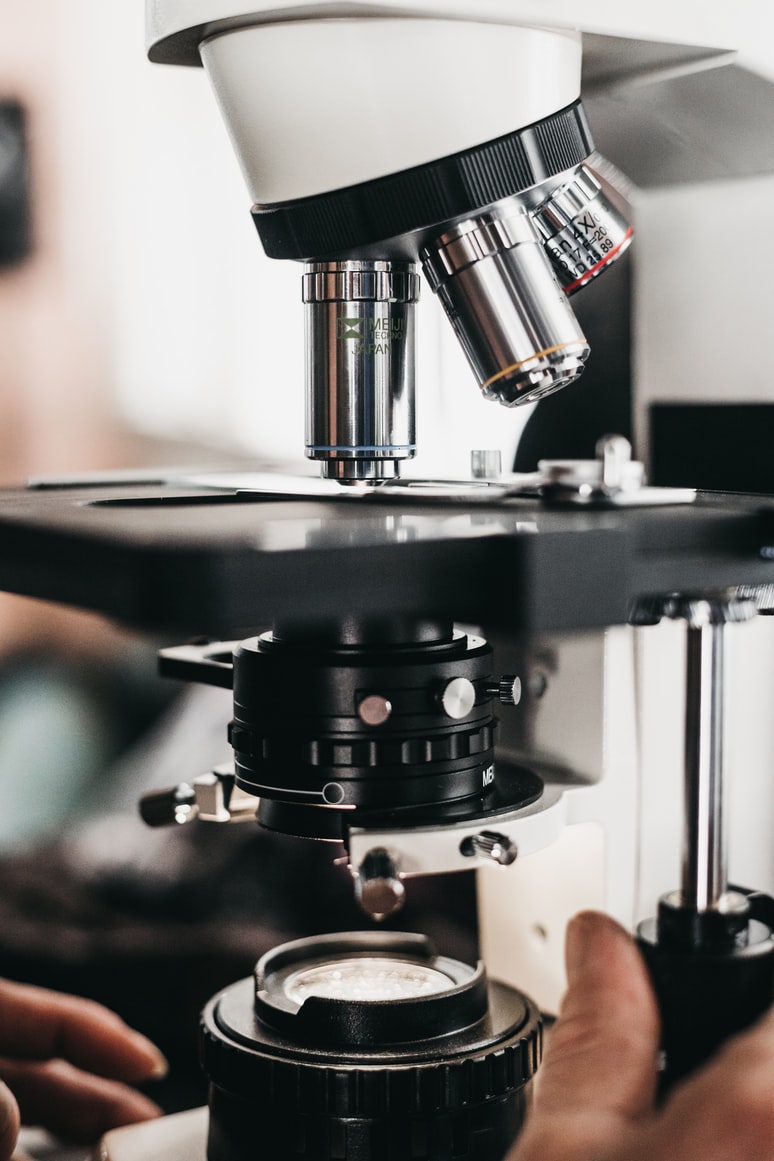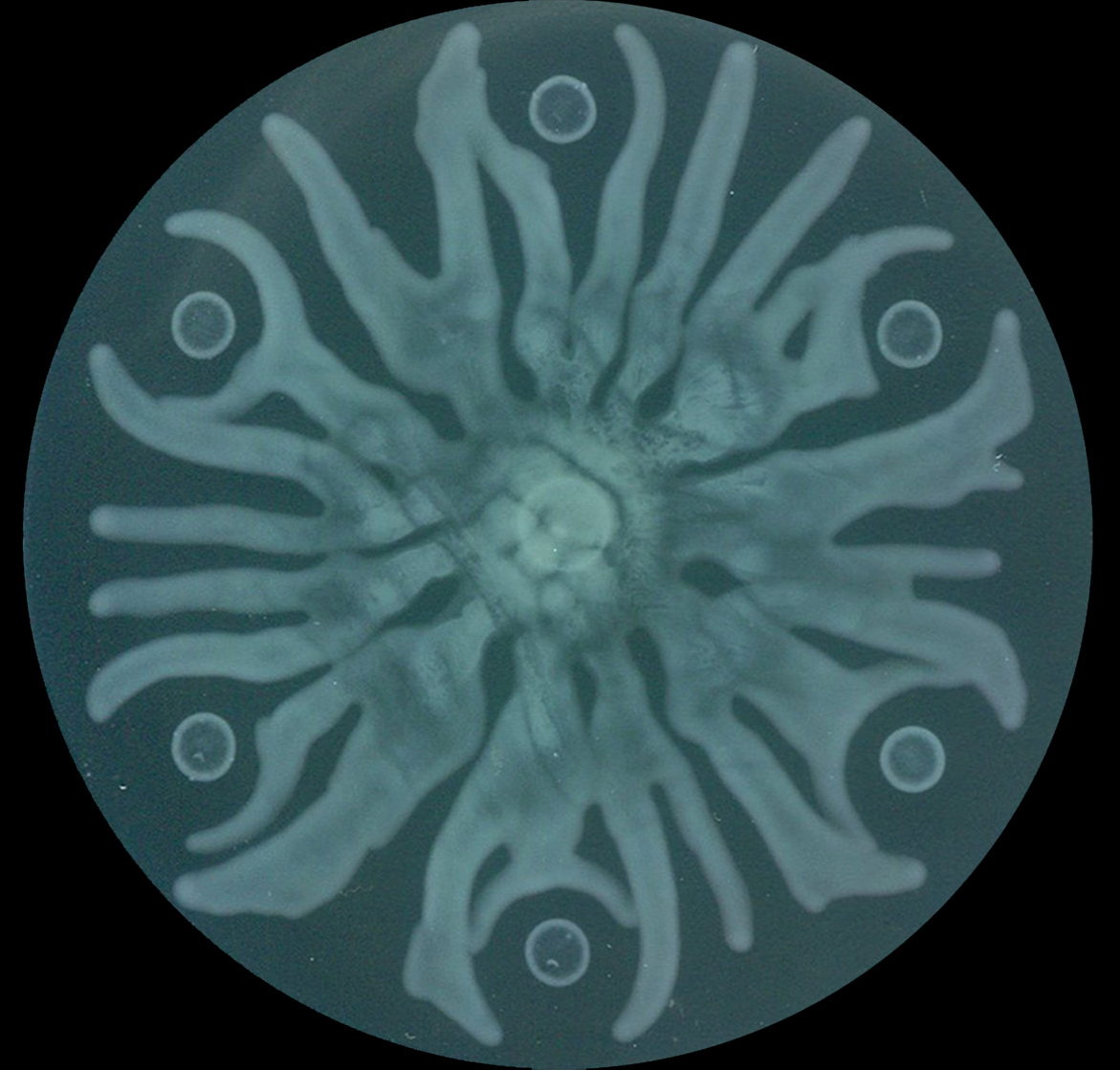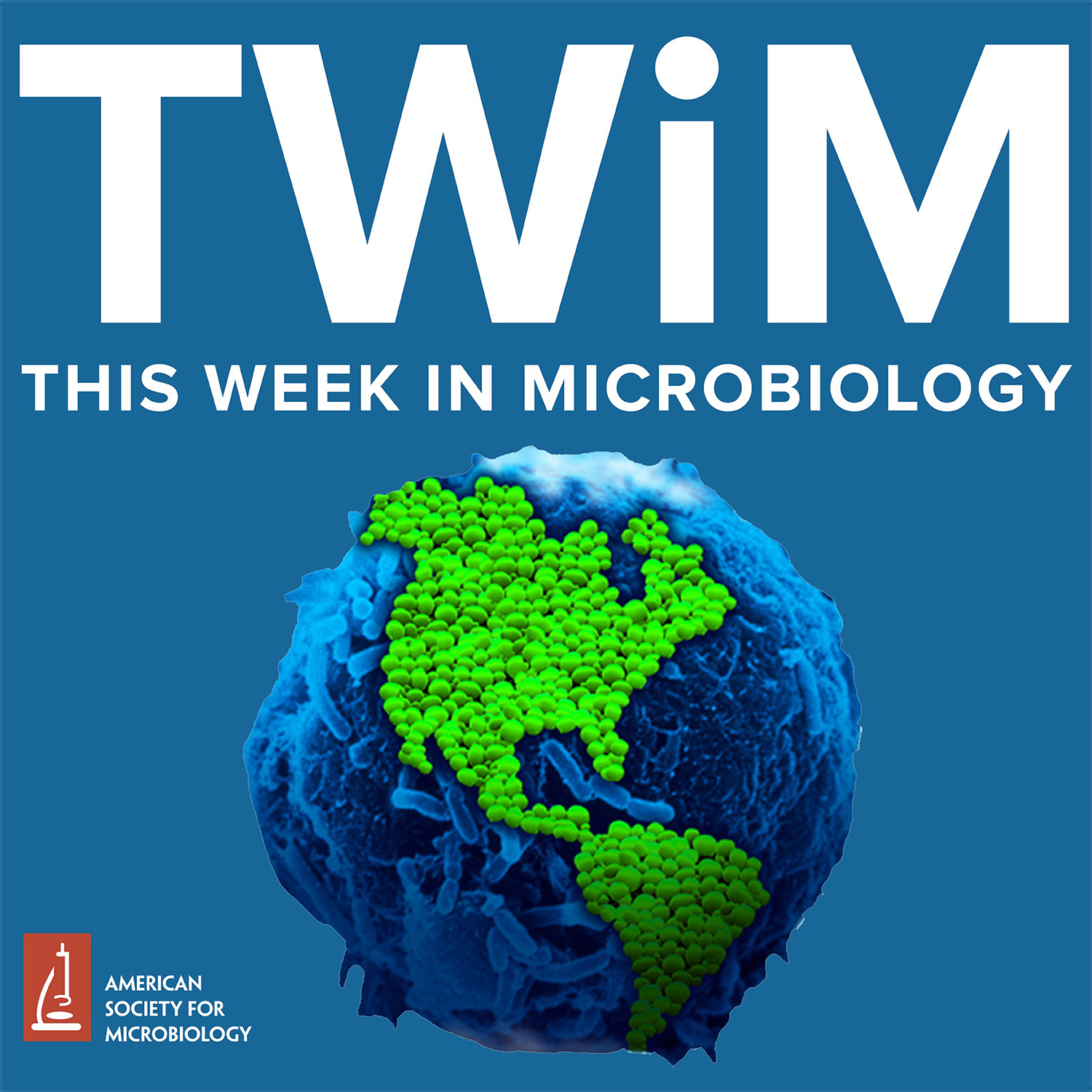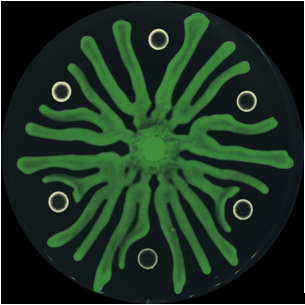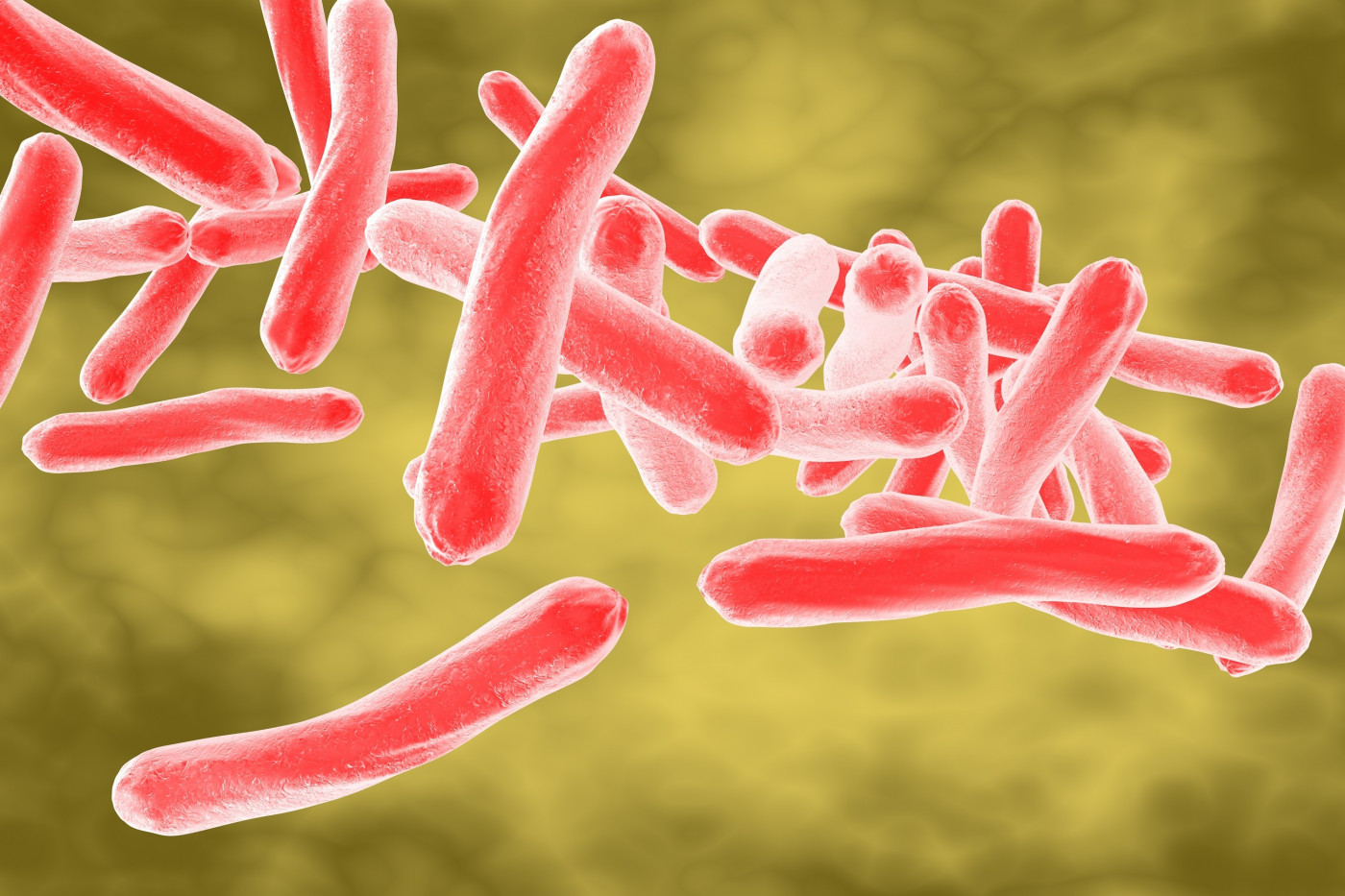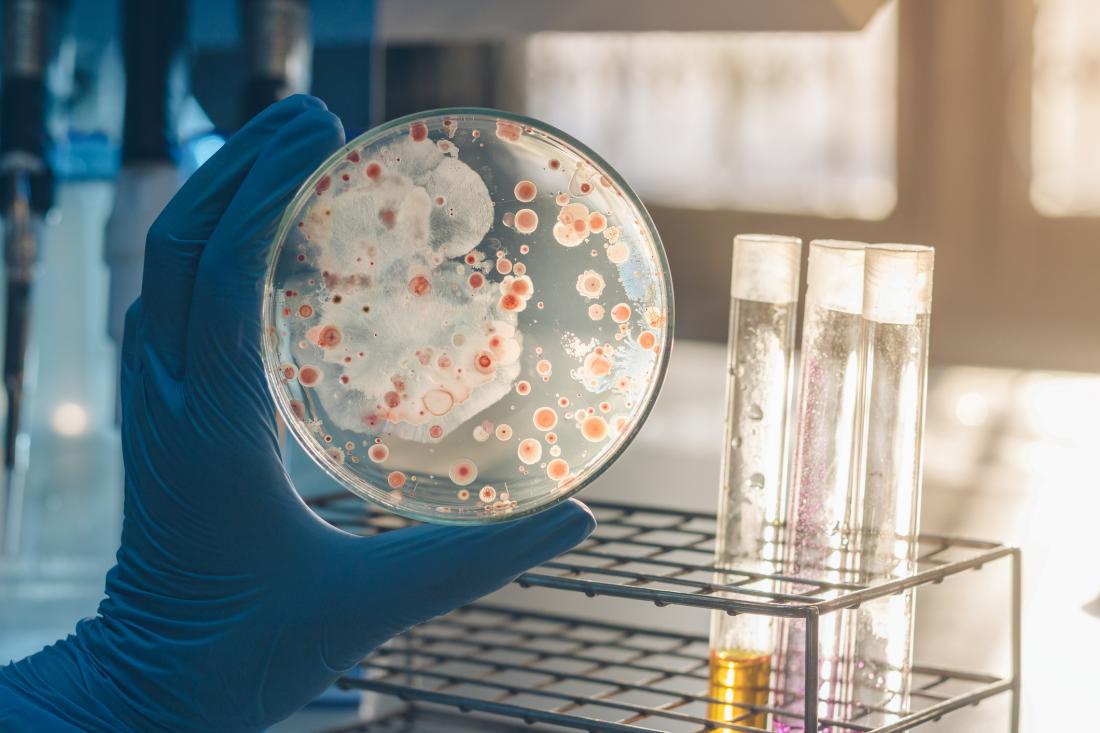Research & Publications
Research at the University of California, Irvine
My research focuses on Pseudomonas aeruginosa which is an opportunistic pathogen commonly found in the lungs. When P. aeruginosa undergoes stress from antibiotic treatments or bacteriophage infection, the bacteria induce the release of Pseudomonas quinolone signal (PQS) as a defense mechanism which allows healthy populations to stay away from dangerous areas. This promotes the survival of the overall population.
Aside from P. aeruginosa, I also studied Staphylococcus aureus, which is another type of bacterium found in the respiratory tract and on the skin. Since both species of bacteria share a common space in our body, I did research on the interaction between P. aeruginosa and S. aureus.
Featured Article
We investigate the effect of bacteriophage infection and antibiotic treatment on the coordination of swarming, a collective form of flagellum- and pilus-mediated motility in bacteria. We show that phage infection of the opportunistic bacterial pathogen Pseudomonas aeruginosa abolishes swarming motility in the infected subpopulation and induces the release of the Pseudomonas quinolone signaling molecule PQS, which repulses uninfected subpopulations from approaching the infected area. These mechanisms have the overall effect of limiting the infection to a subpopulation, which promotes the survival of the overall population.
Pseudomonas aeruginosa treated with antibiotics produce PQS to deviate approaching cells and avoid danger.
Publications
The great divide: rhamnolipids mediate separation between P. aeruginosa and S. aureus
by J.-L. Bru, S.J. Kasallis, R. Chang, J. Nguyen, E. Warren, K. Whiteson, N.M. Høyland-Kroghsbod, D.H. Limoli, A. Siryaporn.
Frontiers in Cellular and Infection Microbiology
2023
Understanding how bacterial collectives organize on surfaces by tracking surfactant flow
by S.J. Kasallis*, J.-L. Bru*, R. Chang, N.M. Høyland-Kroghsbod, A. Siryaporn. *co-first author
Physical Biology
2023
Swarming of P. aeruginosa: Through the lens of biophysics
by J.-L. Bru, S.J. Kasallis, N.M. Høyland-Kroghsbod, A. Siryaporn
Physical Biology
2023
Spatial orchestration of bacterial populations by stress response
by J.-L. Bru, N.M. Høyland-Kroghsbod, A. Siryaporn
Physical Biology
2021
Time-lapse Imaging of Bacterial Swarms and the Collective Stress Response
by J.-L. Bru, N.M. Høyland-Kroghsbod, A. Siryaporn
Journal of Visualized Experiments
2020
PQS produced by the Pseudomonas aeruginosa stress response repels swarms away from bacteriophage and antibiotics
by J.-L. Bru, B. Rawson, C. Trinh, K. Whiteson, N.M. Høyland-Kroghsbod, A. Siryaporn
Journal of Bacteriology
2019
New findings on SNP variants of human protein L-isoaspartyl methyltransferase that affect catalytic activity, thermal stability, and aggregation
by J. Kim, B. Chen, J.-L. Bru, E. Huynh, M. Momen, D.W. Aswad
PLOS One
2018
Polymorphic Variants of Human Protein l-Isoaspartyl Methyltransferase Affect Catalytic Activity, Aggregation, and Thermal Stability
by C. Juang, B. Chen, J.-L. Bru, K. Nguyen, E. Huynh, M. Momen, J. Kim, D.W. Aswad
Journal of Biological Chemistry
2017
Selected Presentations
J.-L. Bru, A. Siryaporn
The Battle of the Surfactants by Staphylococcus aureus and Pseudomonas aeruginosa
2021. Cold Spring Harbor meeting: Microbial Pathogenesis & Host Response
J.-L. Bru, N.M. Høyland-Kroghsbod, A. Siryaporn
The production of PSMs by Staphylococcus aureus protects the population from Pseudomonas aeruginosa invasion
2021. Southern California
Systems Biology Symposium
J.-L. Bru, A. Siryaporn
Pseudomonas aeruginosa swarming on semisolid surface and its interaction with Staphylococcus aureus
2020. UCI Research in Progress
J.-L. Bru, A. Siryaporn
Pseudomonas aeruginosa uses Pseudomonas quinolone signaling (PQS) molecules to stay out of danger from bacteriophage and antibiotics.
2019. UCI Department of Molecular Biology & Biochemistry Retreat
J.-L. Bru, K. Nguyen, E. Huynh, M. Momen, D. Aswad
Mutations in Human Protein Isoaspartyl Methyltransferase (PIMT) Affect Kinetic Activity, Aggregation, and Thermal Stability
2017. UCI Undergraduate Research Symposium
J.-L. BRU, D. ASWAD
Effect of Protein L-Isoaspartyl Methyltransferase Mutations on Central Nervous System Dysfunction
2017. Excellence in Research School of Biological Sciences
